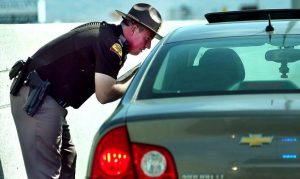The Consequences of a DUI

Individuals who are arrested for driving under the influence of alcohol have committed a serious offense and require legal representation. It is not the goal of this article to give legal advice to anyone. The information here is only designed to be used for educational purposes and should not be construed in any way as legal advice. Seek the advice of a licensed attorney for any legal issues.
Meaning: DUI vs. DWI
Operating a motor vehicle under the influence of alcohol may be termed with different designations under different circumstances or in different states or jurisdictions, including DUI (driving under the influence), OUI (operating under the influence), or even DWI (driving while intoxicated). These offenses are serious and should not be taken lightly.
Definition: What Is a DUI?
Anyone who is operating a motorized vehicle or a vehicle with any type of drive train can get a DUI-type offense. This includes the use of motorized watercraft, lawnmowers, mopeds, and even non-motorized bicycles. Individuals using skateboards, roller blades, etc., would not be charged with a DUI offense if they are stopped while they are intoxicated on these conveyances, but could be charged with some other offense, such as public intoxication, depending on the jurisdiction where the offense occurs.
Which of the Following Is True About Drinking and Driving?
There are several general issues to be aware of when an individual is charged with a DUI offense. All of these issues will vary from state to state, jurisdiction to jurisdiction, etc. In order to learn the exact details regarding DUI type offenses in one’s state, consult with a licensed attorney.
It’s Complicated
All of these offenses indicate that the individual has been apprehended by a police officer while operating a vehicle under the influence of drugs or alcohol. The officer only needs to have an inclination that an individual might be intoxicated from their behavior, mild inconsistencies in their driving, their posture while they are driving, or for any number of other reasons that the officer can choose to make an initial stop. Once the officer stops the individual, they can administer tests to confirm if the individual is legally intoxicated.`
A Drunk Driving Offense Is Not Limited to Just the Use of Alcohol
Any charge of operating under the influence (DUI) is not limited to the use of alcohol. An individual who is operating a motor vehicle under the influence of other drugs, including over-the-counter drugs, prescription drugs, and even illicit drugs, can be charged with this offense.
If Arrested for a DUI-Type Offense, You Will Spend Time in Jail
If an individual is arrested for a DUI-type offense, the arresting officers have the responsibility to remove the individual from the situation and get them off the road. Typically, this means taking them into the police station, booking them, and then putting them in jail until they post bond.
In many jurisdictions, individuals must also demonstrate a significant drop in their BAC in order for them to be released on their own recognizance after being arrested for a DUI or related offense. The actual amount of time an individual spends in jail is dependent on the situation, jurisdiction, etc.
Is a DUI a Felony?
DUI type offenses may or might not be felonies. In most jurisdictions, an individual who is getting a first-time DUI will most likely be charged with a misdemeanor. However, an individual who severely injures or kills someone while under the influence of alcohol or other drugs will be charged with a felony. Some states now also charge individuals with felonies even for first-time offenses if they have a very high BAC; the level can vary from state to state, but as an overall standard, a BAC of 0.15 or higher is a red flag to most legal authorities.
If an individual is arrested for a DUI-type offense while their driving privileges have been suspended or restricted, they may be charged with higher-level offenses. The trend in numerous states is also to charge individuals with multiple DUI offenses with felony convictions after they have been arrested many times for DUIs or similar offenses (most often, three times or more). Thus, in many states, after an individual has two (or three) DUI convictions on their record, any subsequent arrests for DUIs are felony convictions.







